If you have never attempted a Seminole pumpkin recipe, you are in for a tasty treat. This is a special heirloom that has been prized by Native Americans for hundreds of years, particularly in the Southeastern United States. Sweet, but nutty in flavour and smooth in texture, Seminole pumpkin is a double-duty darling, good for both sweet and savoury pursuits. Whether roasted, mashed or baked into a rich soup, its richly hued orange flesh imparts warmth and flavour to virtually any dish.
But aside from that, why does the Seminole pumpkin recipe deserve a market? Unlike the average pumpkin, it’s smaller, firmer and keeps phenomenally well—Mother can last a month, sometimes more, without refrigeration. They are a gardener’s delight and a cook’s secret weapon. Use it in anything from soups and stews to casseroles and sweet baked goods such as pies and muffins, and the familiar flavour of pumpkin will add depth and excitement to those recipes.
This blog post will show you a simple, tasty way to prepare this seasonal Seminole pumpkin recipe that you’ll be sure to make over and over again. To help make the most of this heritage squash (whether you’re a veteran home cook or you were introduced to this autumn gem this year), this recipe is an homage to the singular nature of the pumpkin, while keeping things simple and delicious. Let’s do the deep dive and create a truly nourishing, memorable thing.
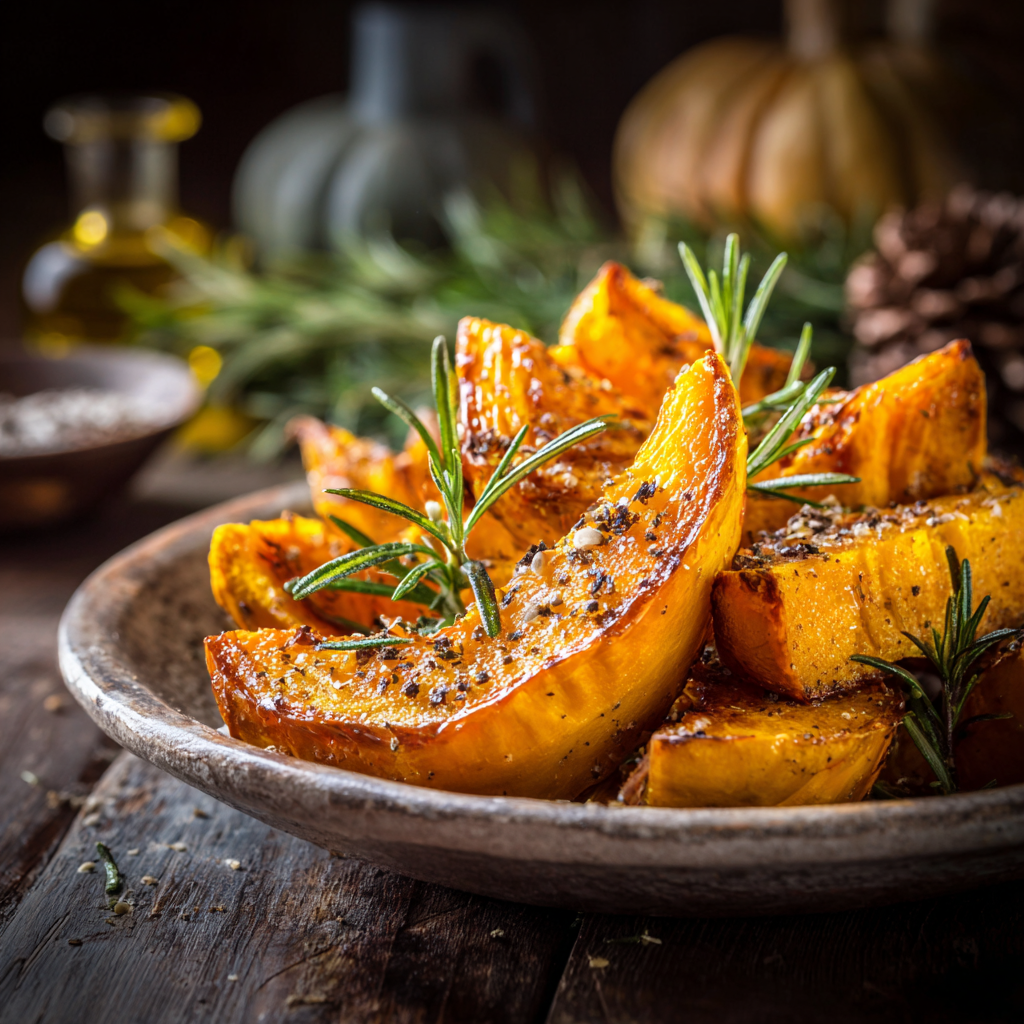
- 🎃 What is Seminole Pumpkin?
- 🥄 Why You'll Love This Seminole Pumpkin Recipe
- 🍴 Equipment You’ll Need
- 🛒 Ingredients for the Perfect Seminole Pumpkin Recipe
- 🔪 How to Prepare Seminole Pumpkin
- 🍽️ Step-by-Step Instructions
- 🧄 Flavor Variations and Customizations
- 🥗 Serving Suggestions
- 🧊 How to Store and Reheat Leftovers
- 🧠 Nutritional Benefits of Seminole Pumpkin
- 📝 Notes and Tips for Success
- 🌱 A Brief History of Seminole Pumpkin
- 🏡 How to Grow Your Own Seminole Pumpkin
- 🍲 Transform Leftovers into New Meals
- 🧂 Spice Pairings That Enhance Seminole Pumpkin
- 🌍 Regional Twists: Global Recipes Using Seminole Pumpkin
- 🍁 Make-Ahead and Meal Prep Tips
- 🍰 Seminole Pumpkin for Desserts
- 📚 Reader Tip: Your Favorite Seminole Pumpkin Recipe
- 💡 Sustainability and Heirloom Eating
- 🛍️ Where to Buy Seminole Pumpkin or Seeds
- Conclusion: Embrace the Beauty of Seminole Pumpkin Recipes
- FAQs: Seminole Pumpkin Recipe
- 🌀 Share Your Twist!
🎃 What is Seminole Pumpkin?
Seminole pumpkin is a Florida native heirloom squash that the Seminole people have grown for hundreds of years. It has a rough skin that comes in yellow or brown and a sweet, velvety interior. Unlike its regular pumpkin kin, it repels pests and loves hot, humid climates. It’s often described as tasting like butternut squash, but with an earthier, more robust flavour.
🥄 Why You’ll Love This Seminole Pumpkin Recipe
This recipe brings out the best in Seminole pumpkin: its creamy texture, subtle sweetness, and ability to blend into savoury or sweet dishes. You’ll love how easy it is to prepare, how well it holds up in the oven, and how its flavour deepens when roasted. Plus, this recipe is naturally gluten-free, budget-friendly, and highly nutritious.
🍴 Equipment You’ll Need
You don’t need fancy tools—just a few kitchen essentials:
- A sharp chef’s knife for cutting the tough pumpkin skin
- A sturdy cutting board
- A large baking sheet or casserole dish
- A blender or immersion blender (if making soup)
- Measuring spoons and cups
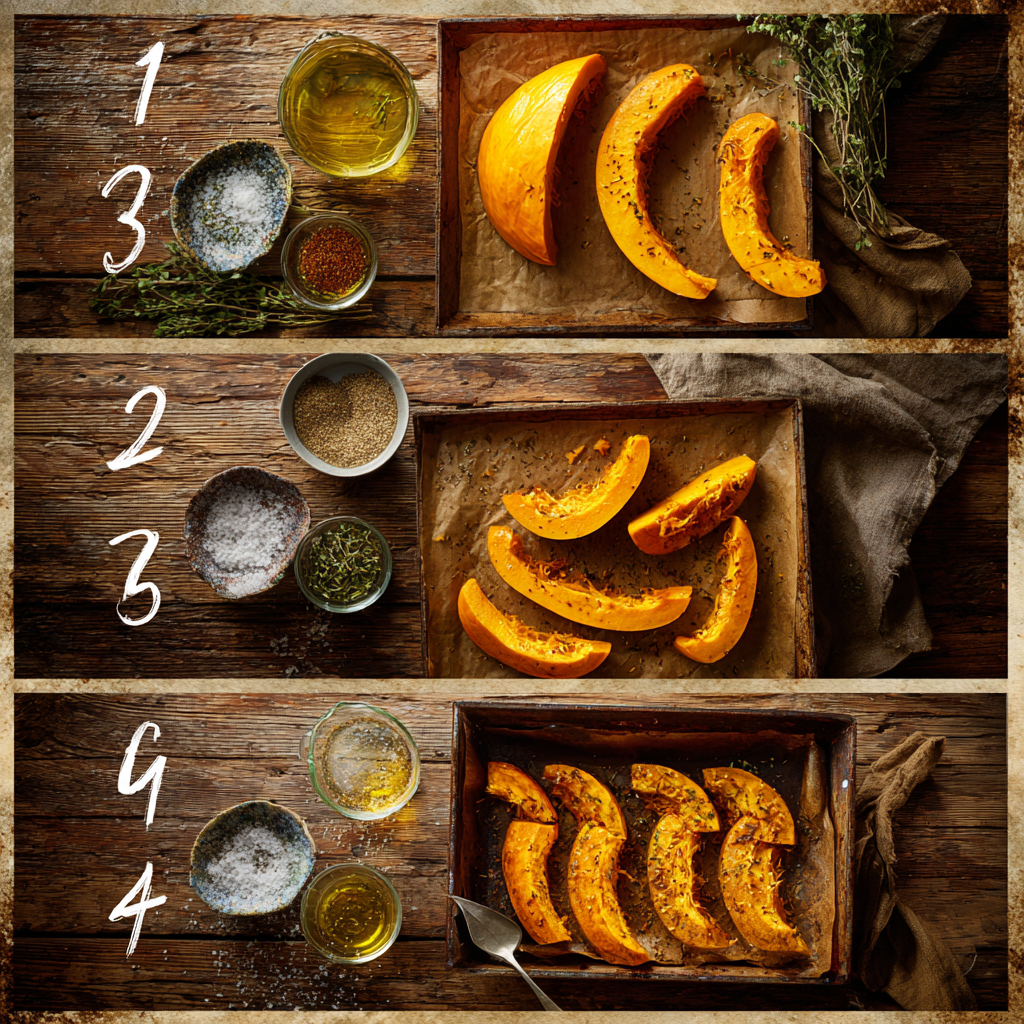
🛒 Ingredients for the Perfect Seminole Pumpkin Recipe
The best part about this recipe? It uses simple, wholesome ingredients:
- 1 medium Seminole pumpkin
- Olive oil or butter
- Salt and pepper
- Garlic and onion (for savory) or cinnamon and nutmeg (for sweet)
- Optional add-ins: maple syrup, fresh herbs, or cream
🔪 How to Prepare Seminole Pumpkin
Start by washing and slicing the pumpkin in half. Scoop out the seeds (you can roast these too!). Cut the flesh into chunks or wedges depending on your recipe. The skin is edible when roasted but can be peeled if you prefer a smoother texture. Pre-cook in the oven, on the stovetop, or in a slow cooker depending on your final dish.
🍽️ Step-by-Step Instructions
Follow these simple steps for a foolproof Seminole pumpkin recipe:
- Preheat your oven to 400°F (200°C).
- Cut the pumpkin into wedges and remove seeds.
- Season with olive oil, salt, and pepper (or your choice of spices).
- Roast for 35–40 minutes until tender and golden.
- Serve as-is, mash it, or blend into soup. Add garnishes for flavor.
🧄 Flavor Variations and Customizations
This recipe is flexible:
- Savory version: Add garlic, rosemary, and parmesan.
- Sweet version: Sprinkle with cinnamon, brown sugar, and a dash of nutmeg.
- Caribbean twist: Use coconut milk and a hint of curry powder for a tropical soup.
🥗 Serving Suggestions
Pair your roasted Seminole pumpkin with:
- Grilled meats or tofu
- Quinoa or couscous salads
- Fall-themed grain bowls
- As a side dish at Thanksgiving or harvest dinners
🧊 How to Store and Reheat Leftovers
Leftover roasted pumpkin stores well:
- Fridge: Keep in an airtight container for 4–5 days.
- Freezer: Freeze in zip-top bags or containers for up to 3 months.
- Reheat: Warm in the oven or microwave; mash or blend for soup.
🧠 Nutritional Benefits of Seminole Pumpkin
Seminole pumpkin is rich in:
- Vitamin A and beta-carotene for eye health
- Fiber for digestive support
- Low in calories, yet filling
- Antioxidants for immune support
📝 Notes and Tips for Success
Don’t toss the seeds—roast them for a crunchy snack.
The skin becomes tender when roasted—no need to peel!
Add a pinch of smoked paprika or chili for heat.
Double the recipe for meal prep or freezing.
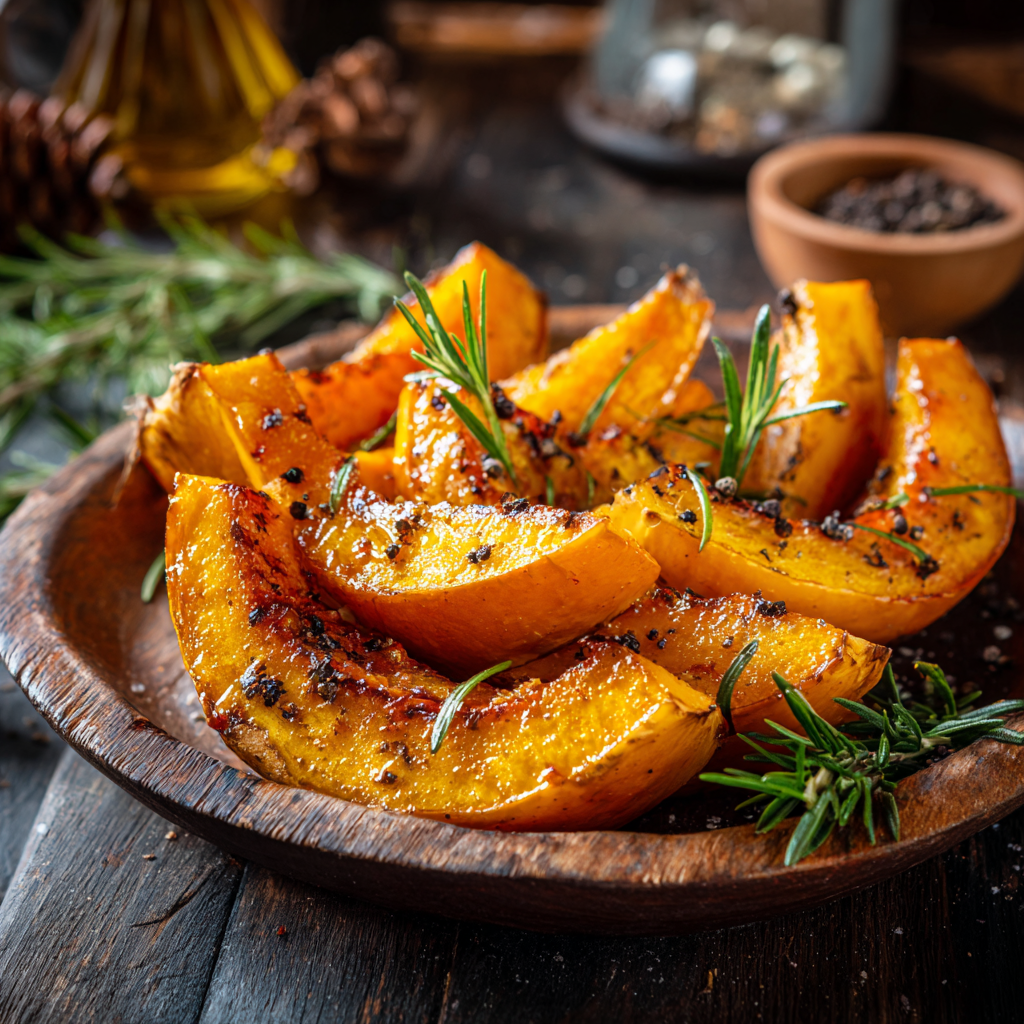
🌱 A Brief History of Seminole Pumpkin
Before there were supermarkets and industrially produced food, the Seminole pumpkin was a common crop among Native American tribes, and specifically the Seminole people of Florida. These were vines set on trellises, and even on trees allowed to trail on their own out in the wild. More than just sustenance, its hardiness, long shelf life, and deep cultural roots make it a living history. Adding a Seminole pumpkin recipe to your culinary repertoire is a way of paying homage to these old traditions.
🏡 How to Grow Your Own Seminole Pumpkin
Want to experience the full farm-to-table journey? Growing Seminole pumpkin is surprisingly easy:
- Plant in late spring, after the last frost
- Needs full sun and rich, well-drained soil
- Vines can stretch up to 20 feet—ideal for garden beds or trellises
- Harvest when skin is hard and the stem begins to dry
Home gardeners love it for its pest resistance and excellent yield. Grow your own and try this Seminole pumpkin recipe using your harvest!
🍲 Transform Leftovers into New Meals
Don’t let a single bite go to waste! Leftover roasted or mashed Seminole pumpkin can be repurposed into:
- Pumpkin pancakes or waffles
- Creamy pumpkin pasta sauce
- Pumpkin muffins or bread
- Smoothies with banana and cinnamon
- Pumpkin risotto or curry
Get creative and use this Seminole pumpkin recipe as a base for multiple meals.
🧂 Spice Pairings That Enhance Seminole Pumpkin
Seminole pumpkin has a subtle sweetness and depth of flavor that plays well with many spices:
- For savory: Cumin, smoked paprika, garlic powder, thyme, sage
- F or sweet: Cinnamon, nutmeg, cloves, allspice, vanilla
- For global flair: Curry powder, turmeric, harissa, or za’atar
Mix and match to find your favorite combo that makes every Seminole pumpkin recipe shine.
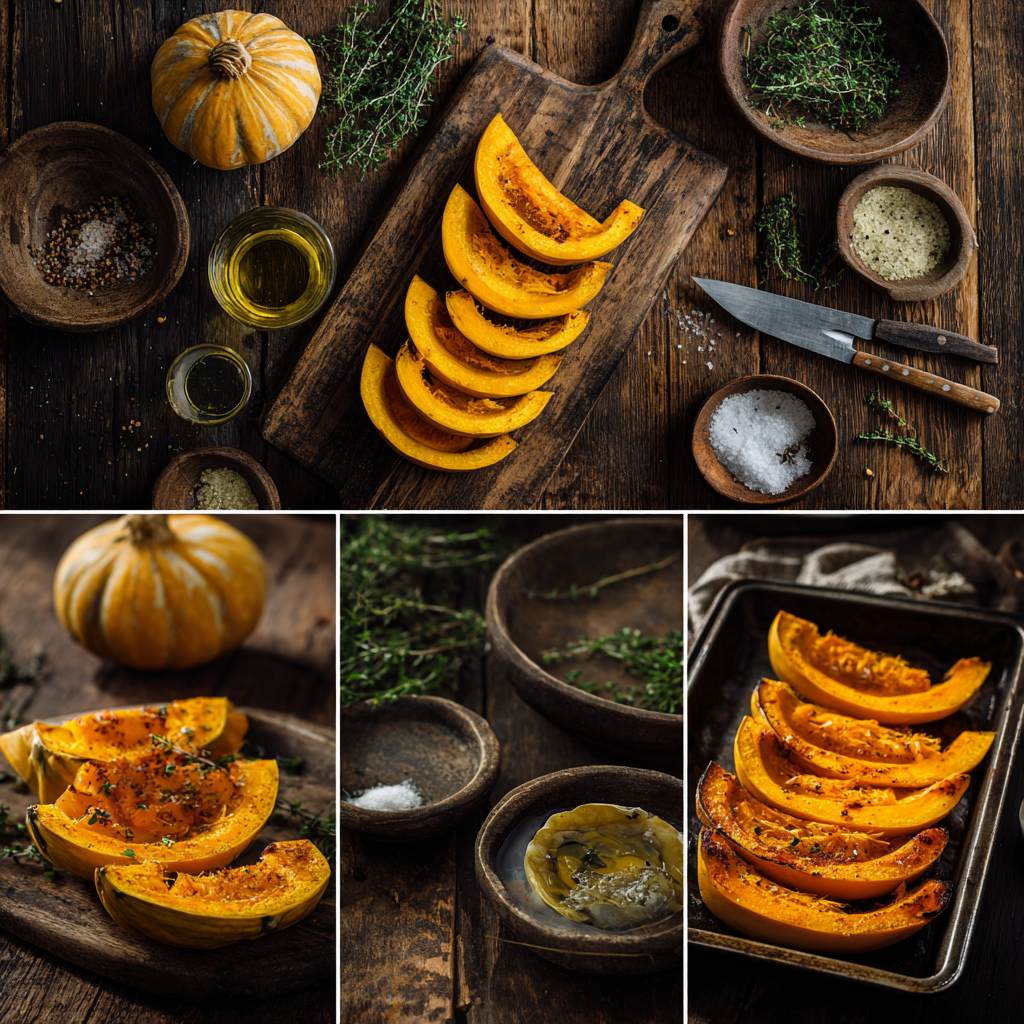
🌍 Regional Twists: Global Recipes Using Seminole Pumpkin
Because of its adaptable flavor, Seminole pumpkin works in recipes from around the world:
- Caribbean Pumpkin Soup: Add scotch bonnet, thyme, and coconut milk
- Moroccan Stew: Combine with chickpeas, raisins, and warm spices
- Thai Red Curry: Simmer with lemongrass, ginger, and coconut milk
- Italian Gnocchi: Blend mashed pumpkin with flour and egg to form gnocchi dough
Explore global cuisine while honoring this uniquely American ingredient.
🍁 Make-Ahead and Meal Prep Tips
Busy schedule? This Seminole pumpkin recipe is perfect for make-ahead cooking:
- Roast large batches and freeze in portions
- Store cooked pumpkin in mason jars for soups and baking
- Add to weekly meal prep for healthy sides
- Freeze cubes raw for long-term use
Cooking once and eating twice is easy with Seminole pumpkin in your kitchen.
🍰 Seminole Pumpkin for Desserts
Did you know this hearty squash makes dreamy desserts too? Try it in:
- Pumpkin pie with maple or cane syrup
- Pumpkin bread with chopped pecans
- Pumpkin cheesecake bars
- Pumpkin pudding with coconut cream
Its natural sweetness makes it ideal for baking, and a great swap for canned pumpkin.
📚 Reader Tip: Your Favorite Seminole Pumpkin Recipe
We love hearing from our readers! If you’ve tried a variation or put your own spin on this recipe, share it in the comments. Whether you added cayenne for heat, made it vegan, or blended it into a dip—your experience might inspire others in our community of food lovers.
💡 Sustainability and Heirloom Eating
Cooked here with Seminole pumpkin, it also promotes biodiversity and sustainable eating. It’s drought-resistant and pest-tolerant, so it doesn’t take much to grow notice. Selecting an heirloom vegetable such as this one will keep culinary traditions alive and decrease reliance on monoculture crops. Cooking a Seminole pumpkin recipe is not only good for your taste buds, but it’s also good for the planet.
🛍️ Where to Buy Seminole Pumpkin or Seeds
Depending on where you live, finding Seminole pumpkin might be easier than you think:
- Check your local farmers markets in fall
- Visit co-ops or heirloom produce sections
- Order seeds online from organic or native seed catalogs
- Ask regional growers or community gardens
Start with this recipe, and you might be inspired to grow your own next season!
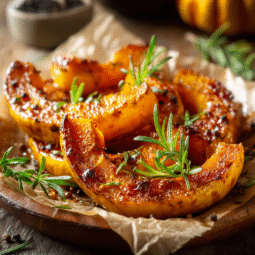
Classic Roasted Seminole Pumpkin Recipe
Equipment
- Sharp chef’s knife
- Large cutting board
- Spoon (for removing seeds)
- Baking sheet or roasting pan
- Parchment paper (optional)
- Measuring spoons
- Oven mitts
Ingredients
- 1 medium Seminole pumpkin about 2–3 lbs
- 2 tablespoons olive oil or melted butter
- 1 teaspoon sea salt
- ½ teaspoon black pepper
- ½ teaspoon garlic powder optional for savory
- ¼ teaspoon cinnamon optional for sweet
- Fresh herbs like thyme or rosemary optional garnish
Instructions
- Preheat Oven: Preheat your oven to 400°F (200°C). Line a baking sheet with parchment paper for easy cleanup.

- Prepare the Pumpkin: Carefully cut the Seminole pumpkin in half. Scoop out the seeds (set aside for roasting if desired). Slice into wedges or cubes depending on preference.

- Season: Place the pumpkin pieces on the baking sheet. Drizzle with olive oil and sprinkle with salt, pepper, and any optional spices like garlic powder or cinnamon. Toss to coat evenly.
- Roast: Roast for 35–45 minutes, flipping halfway through, until the pumpkin is tender and golden on the edges.

- Serve: Serve warm as a side dish, mash with butter for a savory purée, or use in soups, salads, or baked recipes.

Notes
- Skin-On or Off? The skin is edible when roasted and becomes tender—no need to peel!
- Flavor Twist: For a sweet version, add maple syrup and cinnamon before roasting.
- Meal Prep: Roasted Seminole pumpkin keeps well in the fridge for up to 5 days or frozen for up to 3 months.
- Roast the Seeds: Clean and roast the seeds with salt and paprika for a crunchy snack.

Conclusion: Embrace the Beauty of Seminole Pumpkin Recipes
When you cook with Seminole pumpkin, you’re not simply making a seasonal dish; you’re also connecting with tradition, sustainability and the flavour of place. This heirloom squash has been passed down for generations, for more than its delectable flavour but for its strength and deep cultural past. Seminole pumpkin elevates an everyday menu item, giving creamy soup and a comforting dessert an edge that many modern produce varieties are missing.
In giving this simple, tasty Seminole pumpkin recipe a try, you are taking a step toward mindful cooking: cooking with ingredients that are good for you, nourishing and anchored in history. It is also an excellent way to change up your fall or year-round menu. And with such a long shelf life and versatility, Seminole pumpkin is the ingredient you’ll want to have at the ready in your pantry or garden.
So, if you are an experienced cook or a beginner to cooking, try this recipe. Enjoy with family and friends! Spread the word and the taste and history of this special pumpkin… Peppy Pumpkins for the People! Your table will thank you and your taste buds, too.
FAQs: Seminole Pumpkin Recipe
FAQs About Seminole Pumpkin Recipe
What is Seminole pumpkin?
Seminole pumpkin is an heirloom variety native to Florida, known for its sweet flavor, firm texture, and long shelf life.
Can I eat the skin of Seminole pumpkin?
Yes, the skin becomes soft when roasted and is completely edible. Many people leave it on for added texture and nutrition.
How do I store leftover cooked Seminole pumpkin?
Store leftovers in an airtight container in the fridge for up to 5 days or freeze for up to 3 months.
Is Seminole pumpkin the same as butternut squash?
No, but they are similar in flavor. Seminole pumpkin has a nuttier, earthier taste and firmer flesh.
Can I use Seminole pumpkin in soup?
Absolutely! Its creamy texture makes it ideal for blending into hearty soups and stews.
Where can I buy Seminole pumpkin?
You can find it at farmers markets, heirloom produce stands, or by growing it from seeds in warm climates.
What spices go well with Seminole pumpkin?
For savory dishes: garlic, rosemary, cumin. For sweet: cinnamon, nutmeg, maple syrup.
How long does it take to roast Seminole pumpkin?
It typically takes 35–45 minutes at 400°F (200°C), depending on the size of the pieces.
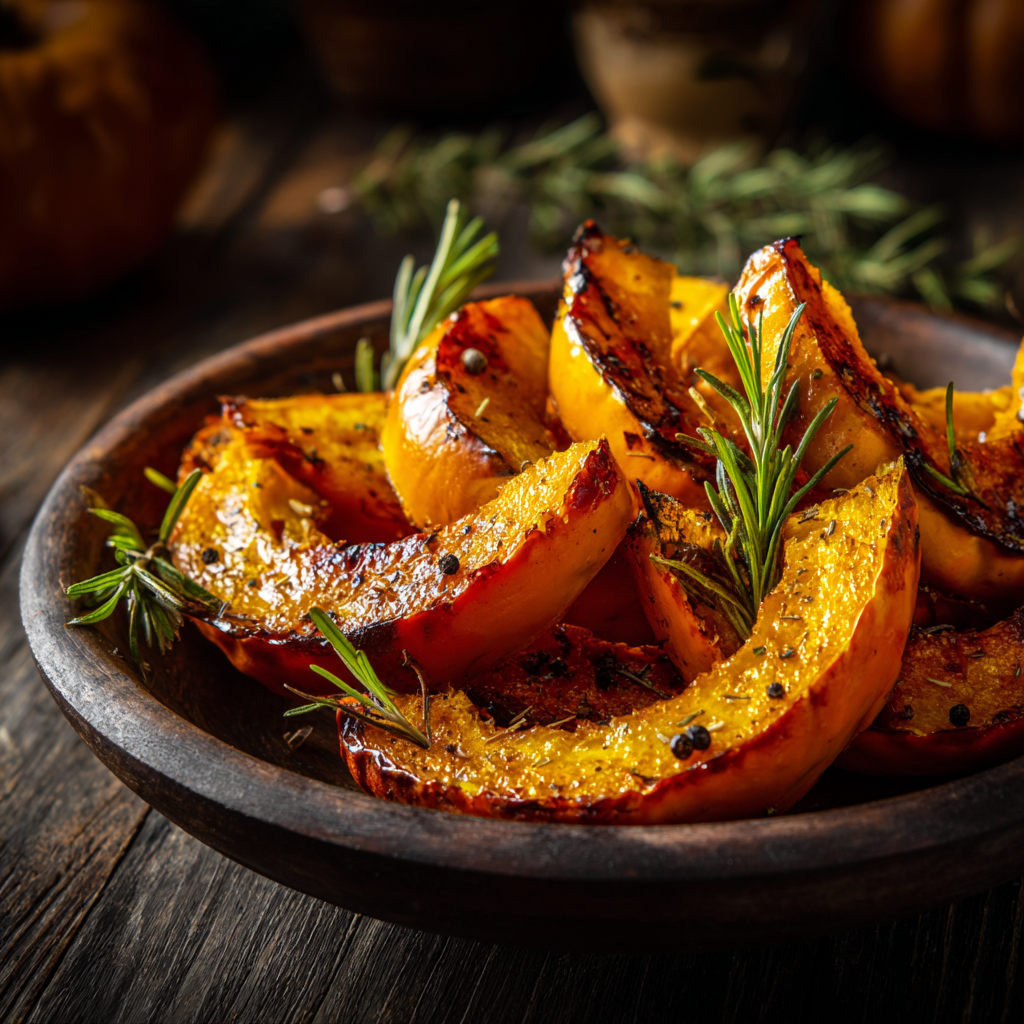
🌀 Share Your Twist!
Tried this Seminole pumpkin recipe and added your own spin? Maybe you used coconut oil instead of olive oil, added a dash of cayenne for heat, or served it with a drizzle of maple syrup? We’d love to hear it!
👇 Drop your version in the comments below or tag us on social media with your creative twist. Your ideas might inspire someone else, and who knows, your version could become a favorite!
Let’s celebrate heirloom cooking together, one delicious variation at a time! 💬🍂

